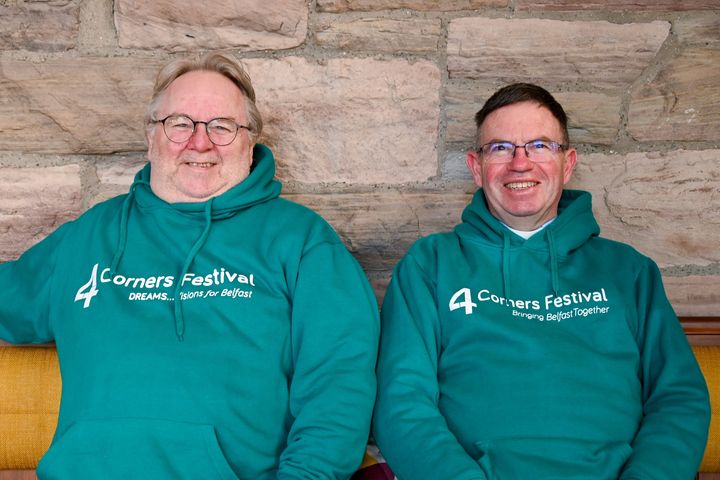
Three years after the Medical and Dental Council of Nigeria centralised the compulsory housemanship for graduates of Medicine and Surgery, investigations by PUNCH Healthwise show that many are still denied placement and some are frustrated out of medical practice due to hospitals’ limited quota. JANET OGUNDEPO reports She sighed and smiled as she took the Hippocratic Oath. The journey to becoming a medical doctor has gradually arrived for a resident of Kano State, Hauwa Aminu.
Although it took her eight years to arrive at this point, no thanks to the several strikes embarked on by the Academic Staff Union of Universities and the COVID-19 pandemic, Aminu was glad to finally have this phase of life over and done with. At age 16, the Kano State resident had her life planned out and hoped for a smooth and fast ride in life. But she was unprepared for yet another waiting period at home, lasting several days, as she applied for a hospital to complete her mandatory 12-month housemanship.
She told PUNCH Healthwise that since her graduation in August and induction in October, she had been waiting for when she would be on the list of House Officers in the Lagos State University Teaching Hospital, Ikeja, for her housemanship. Her choice of a hospital in Lagos was the desire to acclimatise with the West, having lived all her life in the North. The reviews she got from senior colleagues about the hospital further strengthened her resolve.
Little did she know that the hurdles of getting a placement in her desired hospital would bring a pause to her life plans. “In some places that have good pay and accommodation, most people have to go through the back door. It is as bad that some people sell those slots.
So when you hear people say they are paying N400,000 for house job placements, how much is your salary that you are paying N400,000 for house job placement?” Aminu queried. But picking any available hospital on the portal, regardless of the location, was something Aminu had determined never to do. Experiences such as hospitals paying a lesser amount stipulated by the MDCN “under the disguise of taxes and whatnot” and “some interns in some centres are receiving way below the average salary.
“Also, if there will be any difference it should be an increase as is done in Lagos state hospitals!” were stories that strengthened her resolve to wait until she got her desired hospital. “In some places, they make people pay for light and accommodation, meanwhile, there are some places where they have free and good accommodation so the whole thing is not unified. Sometimes, you pick a place and that is when you realise that there is no accommodation and you have to begin to seek accommodation,” the junior doctor said.
She further mentioned that at the beginning of the centralised portal system, getting placement was on a first-come-first-serve basis, but “over the years, it has become a thing of connection and who knows who. People are opting to ask their parents to call commissioners, politicians, and generals, and if you know the Chief Medical Director and the Medical Director you begin to pull strings so you could get it through the back door. So, while it pays some people, it doesn’t pay everyone.
” To ensure she gets her desired placement, Aminu says she was ready to “call anybody I can call to help me.” Currently, the medical graduate is yet to get a placement in any hospital. But she is not alone.
For fear of victimisation, the names of some of the doctors who spoke to PUNCH Healthwise during this investigation were changed. Who are House Officers? NARD President, Dr Tope Osundara According to the President of the Nigerian Association of Resident Doctors, Dr Tope Osundara, HOs, as they are also called, are the first responders in the cadre of doctors in a hospital. House officers are graduates from medical school undergoing their mandatory one-year practical training in a hospital.
A 2023 journal on the ABCs of House Job University College Hospital, Ibadan, by E O Ugwu et al, notes that HOs are the most junior doctors on the team and they shadow either the Consultant or Senior Registrar during clinics and help to perform physical examinations and fill investigation forms, among other duties. The portal system In April 2021, the Medical and Dental Council of Nigeria introduced a centralised housemanship placement portal, enabling newly registered doctors and dental surgeons awaiting housemanship training to secure postings. Findings from senior doctors revealed that the portal, compared to previous years, helped reduce the sometimes one to three-year wait for house job placements.
However, PUNCH Healthwise findings revealed that due to an increase in the number of doctors awaiting housemanship, the competition for preferred locations and hospitals, along with the exclusion of state-owned hospitals from the MDCN portal, some newly graduated doctors now had to wait months for placements. Restricted to particular areas PUNCH Healthwise gathered from several HOs and those awaiting housemanship placements that many of them wanted to remain within their state of residence due to insecurity. A house officer, who pleaded anonymity, stated that she had to keep a vigil on the portal to ensure she was one of the lucky few who got into one of the Federal Government-owned hospitals in Abuja.
Her choice of Abuja was to ensure she had access to the basic amenities she was used to and to remain in her state of residence. The HO stated that she had to send her MDCN portal details to three people in different areas to ensure she was due to limited space. She had heard of many people who couldn’t get their desired centres because the spaces available were few.
“Getting it was quite tedious considering the time I had my induction. After my induction, the hospitals on the portal were not my choice so I had to wait for more hospitals to be uploaded. “I also had to resort to fate and ensure my internet connection was strong since I didn’t have the human connection to get into the hospital.
These choice hospitals are only on the portal for about three to five minutes so I had to send my details to relatives abroad who were on the lookout for when the hospital was up and applied for me. So, I was one of the lucky few,” the HO said. Insecurity scare Due to the insecurity issue, a serving HO, who wants to be identified only as Dr Rahik, had to forfeit his earlier placement at Federal Medical Centre Nguru, Yobe State.
Rahik told PUNCH Healthwise that immediately he selected the hospital, he was picked and got an appointment that same day. While he was making plans to head to the Yobe State, the Lagos State indigene, heard of a terrorist attack in Nguru town two weeks before his arrival. “Because of that I changed my mind,” Rahik said.
But at the time, the doctor noted that the portal was closed. “Immediately it was reopened I applied to FMC Birnin Kebbi, Kebbi State which was available. But at the time, there was no hospital available in the South-West on the portal,” Rahik noted.
Speaking from his encounter with his colleagues in the Northern and Southern parts of the country, the HO said, “Almost everybody, either from the North or South, wants to have their house jobs in the South-West. But this is always a problem, they could have about 30 slots but you end up having over 300 doctors jostling for them. So it becomes a case of who you know.
But in the North, it is not like that, there are many vacancies but not many people want to stay, even the residents.” Professor Mike Ogirima To avoid the long waits, a Professor of Orthopaedic and Trauma Surgery, Mike Ogirima, urged the awaiting house officers to utilise the centralised posting from the MDCN portal. Ogirima, a past President of the Nigerian Medical Association, said, “There’s insecurity everywhere.
We should persuade them to utilise the centralised posting from MDCN. It is working, parents and fresh medical graduates should not wait to desire a particular hospital of their choice.” Endless wait fuels japa As the medical graduates are confronted with strong placement hurdles, the Coordinating Minister of Health and Social Welfare, Prof Muhammad Pate, says the country currently boasts of 55,000 licensed doctors while 16,000 doctors were lost to the japa syndrome in the past five years.
Amid the acute manpower shortage, the nation’s health sector is also struggling with inadequate equipment and infrastructure. Further findings by PUNCH Healthwise indicated that every year, many medical colleges in the country have graduates of Medicine and Surgery, who join the waiting list. Our correspondent gathered that the limited quota system restrains the management of many hospitals from admitting more than the slots allotted to them by their regulator—MDCN.
Only 44 FG-owned hospitals on MDCN portal MDCN Registrar, Dr Fatima Kyari The MDCN Registrar, Dr Fatima Kyari, in an exclusive with PUNCH Healthwise, stated that every hospital accredited for housemanship had a quota. Kyari noted that there were 114 MDCN-accredited hospitals and only 44 were under the MDCN centralised housemanship portal. She explained, “For example, Abia State University Teaching Hospital has a quota for medical 60 house officers.
They don’t do dental so their quota is 60. The list of all the hospitals that do housemanships with their quota is on the website. We have a list and a quota.
For accredited hospitals, there are 114 and this is made up of 47 teaching hospitals, 21 Federal Medical Centres, 37 General Hospitals or Specialists, which are mostly state-owned and Military Hospitals and nine private hospitals. We are in the process of accrediting more hospitals.” Giving further insight, she added, “Out of the 114 accredited hospitals, only 44 are under the MDCN centralised housemanship portal.
That means we have 70 accredited hospitals that are outside the MDCN housemanship portal. These 44 are federal-owned and the others are state or military-owned or private. It is only these 44 that we put on the portal and we have specified quota for those hospitals.
So we have a total of 2,783 places for medical housemanships in those 44 hospitals and for dental they are 211,” Kyari said. She clarified that the accreditation of a hospital was based on the available facilities and consultants in the four major departments, which are surgery, internal medicine, obstetrics and gynaecology and paediatrics. Investigations also showed that the endless wait had frustrated some of the medical graduates out of the medical practice while some decided to try their luck overseas by leaving the country.
However, a house officer, Ibrahim Shehu, stated that the desire of some Medicine and Surgery graduates to have their house jobs in only federal hospitals was responsible for their long waiting time. He noted that since each hospital had a particular quota, every graduate could not be accommodated under the FG hospitals. Shehu, who is the National Financial Secretary of the Nigerian House Officers, stated that a meeting with the MDCN Registrar showed that the long wait was because of the desire of the prospective HOs in wanting a particular hospital or state.
He further noted that the portal was opened bi-monthly and advised the prospective HOs to choose available centres for their house jobs. Apply to available hospitals, NMA advises Prof. Bala Audu, NMA President President of the Nigerian Medical Association, Prof Bala Audu, noted that available institutions only appeared on the portal when there was a vacancy.
Audu in an exclusive interview with PUNCH Healthwise maintained that application for housemanship through the MDCN portal or to state and accredited private hospitals required no monetary inducement or connection, emphasising that NMA had not “received any complaint from any Nigerian doctor to that effect.” The don, however, noted that if there were doubts about the ethical processes, there was “room for investigation.” Commenting on the medical graduates’ choice for housemanship in hospitals in the cities, Audu said that the concentration of other professionals aside from health professionals, were in major cities.
“This just tells us that there is a need to improve the amenities in our rural communities to enable doctors and other professionals, not just health professionals, to be able to go and practice in those places. Sometimes it’s not just about the hospitals. No, it is also about the primary school that they will take their children.
It is also about security. So all these issues are kind of interrelated, they are intersectoral and are not just limited to issues within the health sector. “And that is why you may find that even the MDCN portal that people are saying is not open for them to apply, maybe they just want to apply to specific places.
If you are waiting to only apply to big hospitals, like the National Hospital, Abuja, or the Teaching Hospitals in Abuja, or Maitama, or you are just waiting to apply to major hospitals in Lagos or Ibadan, then you have to wait until those hospitals have vacancies. “Meanwhile, there are many other Federal Government-owned hospitals that have vacancies, but people don’t want to apply to those hospitals. So this is part of the challenge.
So these are the key issues also there,” the NMA president said. Continuing, the don said, “People need to be counselled to understand that the practice of medicine and any health profession, for that matter, is universal. You are called to responsibility, not just within urban centres, but also within the periphery.
So rather than insist and waste too much time, waiting for a vacancy to arrive within the city, you can go to smaller hospitals that have been recognised. There may even be bigger hospitals, but they are out of the city. “So we will advise those who are looking for vacancies to apply to those places where there are vacancies instead of waiting in a long queue for hospitals that don’t have vacancies and waiting until vacancies are available, which means some other people have to finish their internship and leave before they can apply because there is a specific number they can take, and this is also regulated by the MDCN.
” Experts seek process review Dr Emeka Orji An Orthopaedic doctor, Emeka Orji, stated that a comprehensive review of the central placement of house job placements through the MDCN portal had become necessary to ensure improvement in the process. Orji called for a routine discussion and review involving all the major stakeholders, including the NMA, NARD, the Committee of Chief Medical Directors, and MDCN and coordinated by the Ministry of Health on the challenges bedevilling the processes and the way forward. Orji, who was a past president of NARD further called for the involvement of all major stakeholders in the advertisement of hospitals in need of house officers to ensure available hospitals were listed on the portal.
‘More medical graduates, fewer hospitals’ On his part, the Lagos State Chairman of the NMA, Dr Saheed Babajide, said the increase in medical schools in the country, coupled with the number of foreign-trained graduates, was not commensurate with the number of available hospitals for housemanship training, creating a gap and deficiency. He added that the preference of the new graduates to have their housemanship in Lagos, Ibadan, Port Harcourt and Abuja had further put pressure on the hospital management in such areas. Babajide further said, “The issue of insecurity has made people not want to go outside Lagos, Port Harcourt and areas where they feel they are safe.
People don’t want to go to the North and East, which is affecting the availability of space and allocation for the house officers,” the doctor said. He noted that the long wait by the medical graduates was a factor fuelling the japa syndrome. Dr Babajide Saheed, Lagos NMA Chairman The Lagos NMA chairman also emphasised that the lack of synergy between the state and federal governments in creating separate portals for doctors applying for housemanship in federal and state hospitals created the absence of accurate data on the total number of house officers graduating each year.
He urged the government to assess the number of hospitals accredited for housemanship in relation to the annual number of medical school graduates, emphasising that this would guide the government in making informed decisions. Babjide called for the inclusion of the state hospitals in the MDCN portal or the creation of a separate portal for the non-federal hospitals and the need to reassess the rising number of medical schools in relation to the limited available hospitals for housemanship. He urged the government to resolve the insecurity issues in the country.
Increase house officers quota -NARD Speaking further on the issue, the NARD president who earlier spoke with our correspondent, urged the Federal Government, the Federal Ministry of Health and Social Welfare, and other agencies involved to look keenly into the issue of recruitment of house officers. “I enjoin the government to do more. The MDCN have been trying but they can also do well by increasing the quota of medical graduates that will be allocated to these hospitals so that they can also be empowered to employ more house officers,” Osundara said.
He also urged the government to provide an enabling environment and facilities for the house officers, adding that the MDCN should then accredit the hospitals and increase the quota to accommodate more house officers. The NARD president encouraged the medical graduates not to streamline their options to particular places or hospitals. The MDCN registrar further noted that the accredited hospitals must have accommodation for the house officers.
She said, “Depending on the number of consultants, we have the number of house officers. So, you can’t have 30 house officers under one consultant, for example, there is a ratio. Apart from that, they must have a call room within the hospital and they must have accommodation for the house officers, The house officers are usually the first person the patient sees in the hospital, no matter the time of the day and patients don’t choose the time that they get sick so they can come into the hospital at any time.
“Any hospital that is accredited enough to have a house officer, means it is a hospital that runs 24 hours a day. A house officer must have comfortable accommodation within that environment and even if they are on call, the call room must be comfortable. These are some of the parameters we use to accredit and use to give a specified number.
” She also disclosed that the portal was manned by the Information Technology team. “If teaching hospital A has a quota of 100, in that 100 because it is a teaching hospital, with a roundtable discussion with the Provost, CMD, Honourable Minister for State and MDCN, we agreed on a distribution. So, if you go to the portal, you will see that if it is a teaching hospital, 30 per cent goes to the CMD, 20 per cent goes to the Provost.
“That is because it is a teaching hospital and they would want their students on graduation to continue their work, under supervision, in that hospital. They have their way of determining what that 50 per cent will go on their list. Usually, it is those who are on the Dean’s list and those who have won prizes.
“On graduation, they send us their list but it is only 50 per cent of that 100, assuming all that 100 is opened. Then MDCN has 10 per cent and 40 per cent goes to the portal. That is for the teaching hospitals because they teach and produce doctors.
For the FMCs, because they don’t teach, only 20 per cent goes to the Medical Director, and 10 per cent stays with MDCN because we have requests from officers in the country even though we are not supposed to have people requesting from us. But 70 per cent goes to the portal. So, if the vacancy today is 10, the sharing is still the same”, she explained.
Kyari disclosed that the MDCN was planning to increase the numbers and was making a case for the required infrastructure to accommodate the plan. Copyright PUNCH All rights reserved. This material, and other digital content on this website, may not be reproduced, published, broadcast, rewritten or redistributed in whole or in part without prior express written permission from PUNCH.
Contact: [email protected] Tags #Japa doctors hospitals' quota Housemanship placements MDCN medical graduates NARD NMA.














